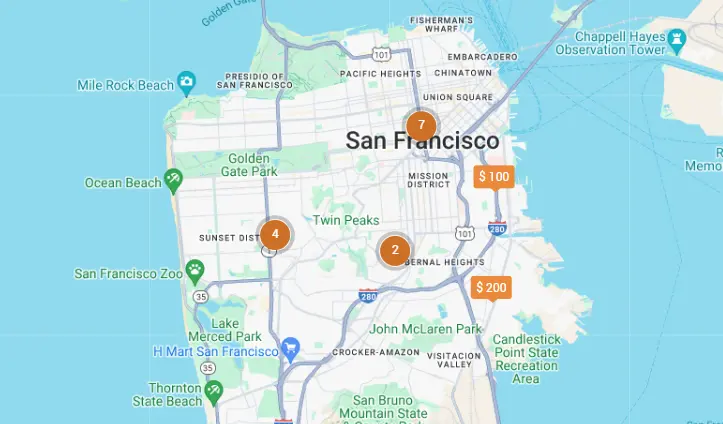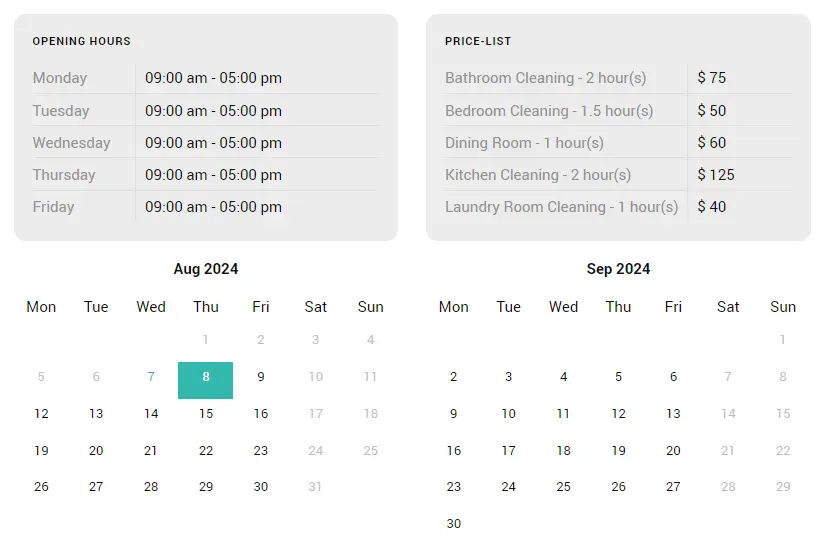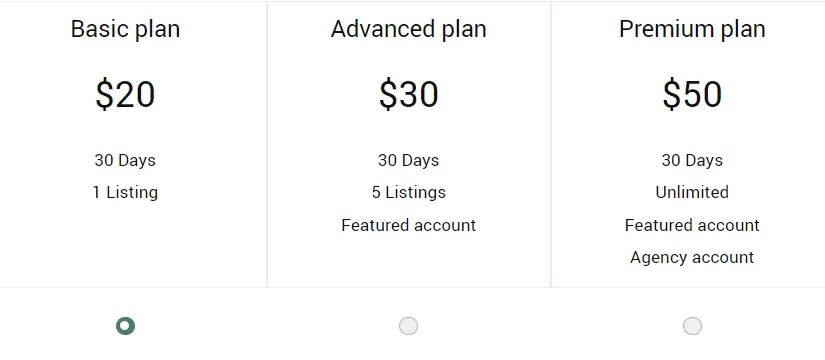We released the Service Booking software last year. Although it was powered by our CMS, it marked the first time we rolled out something distinctly different from our usual scripts. Today, we are excited to share a comprehensive guide designed to help you launch a service portal effectively, considering the most important factors. This article offers valuable recommendations for all our customers and prospects considering launching or already running a service portal.
How to select a domain and hosting
Choosing the right domain is crucial for the success of your service portal. Opt for a domain name closely associated with jobs, tasks, professionals, and services, using your national top-level domain (TLD). It should be concise and easy to remember.
Initially, shared hosting may suffice as you attract professionals and customers to your portal. As traffic increases, consider upgrading to more robust hosting solutions, such as VPS or dedicated hosting, to accommodate your growing needs.
Our team is ready and eager to assist you with the installation and setting up your service portal.
Determining the scope of your service portal
When launching a service portal, it’s important to realistically evaluate your resources and time. We recommend starting with a city-specific portal, particularly in the city where you reside, for several reasons:

- Local Marketing Advantages: It’s more cost-effective and simpler to market your portal within a city;
- Resource Management: You’re more likely to have adequate resources to manage the workload;
- Scalability: Starting locally allows you to expand gradually after establishing a strong presence in your local market.
Alternatively, you might consider launching a nationwide service portal. This broader approach requires:
- Additional Staff: You will need more personnel to manage the increased operational demands;
- Enhanced Server Resources: Increased traffic requires more robust server capabilities;
- Increased Marketing Budget: A national reach demands a larger investment in marketing to achieve visibility across a wider area.
Challenges you will have to address post-launch
The success of your service portal hinges on the interaction between two key groups:
- Customers: The end users who will be buying the services provided.
- Service Providers: The professionals who offer their services through your platform.
Attracting service providers
The range of services offered on your portal depends significantly on the diversity and number of service providers you attract. Attracting more professionals is essential, as they significantly expand and enhance the range of services available on your platform. This is one of the primary challenges you will face after the launch.
Optimizing for search engines
Effective optimization of service providers’ profiles and service categories is essential, especially if budget constraints limit your ability to engage in extensive marketing campaigns. Proper SEO practices will enhance the visibility of these profiles, making it easier for potential customers to discover services through online searches.
Building critical mass
A critical mass of service providers is necessary to trigger a chain reaction of customer interest and engagement. The goal is to reach a point where the influx of customers sustains and fuels the growth of the portal organically. Once you achieve significant traffic, word-of-mouth will likely enhance your portal’s popularity, drawing even more customers seeking to accomplish their tasks.
How to attract pros to your service portal
Attracting professionals is crucial for the success of your service portal. Here are two effective strategies to follow:
- Local Advertising Campaigns: Promote your service booking site through local media or city-specific online portals. Invite local professionals and service providers to join your service portal by offering them a free membership plan for the first month along with the opportunity to publish a service listing. This initial incentive can help jump-start the participation of service providers.
- Creating Service Listings for Pros: To overcome the challenge of starting with an empty site, proactively populate your portal by creating service listings on behalf of pros. Browse through local advertising platforms for existing service offers and replicate them on your site. You can use our Claim Listing plugin, which allows pros to claim their pre-created listings, edit their descriptions, and add more services. As your portal gains popularity, these listings will attract more views and traffic, providing significant exposure to the professionals. You’ll be able to contact such pros and demonstrate the benefits of your portal, encouraging them to move to paid membership plans for sustained customer flow. This approach helps build a robust initial database of services and facilitates a passive income as more professionals opt for paid subscriptions.
How to attract customers to your service portal
Attracting customers to your service portal requires a strategic approach similar to how you engage professionals. Here are two effective methods:
- Local Advertising: Promote your portal through various local media outlets, such as newspapers, radio stations, or local online forums. Tailor your advertising strategy to the specifics of your targeted locality to resonate with potential customers in that area.
- SEO-Friendly Professional Profiles: One of the most effective strategies is to enhance the online visibility of your service portal through search engine optimization. Create detailed, SEO-friendly profiles for professionals with a focus on incorporating location data in titles and descriptions. This helps in optimizing each profile for search engines, making it easier for potential customers to find services like “electric services in {location}” when they search online. Our software supports adding locations to URLs, which further helps in targeting services at a city or country level, thus attracting a focused customer base.
By combining targeted local advertising with strong online visibility through SEO, you can effectively drive both first-time and repeat customers to your portal.
Two modes of running your service portal
To accommodate different service needs, we offer two modes of operation for your service portal:
Service portal with an appointment scheduling functionality
You can use our Booking plugin to allow your customers to book services online. This feature transforms your portal into a fully-fledged appointment scheduling platform, ideal for professionals and customers who appreciate the convenience of managing their schedules efficiently. The booking module is particularly beneficial for small-sized companies offering time-sensitive services. However, it may not suit professionals who face difficulties in estimating the duration required for specific tasks.

Call-and-agree service site
For service listings for which it is difficult to precisely predict the time needed to complete a task, the booking module can be disabled. This option caters to a more flexible approach, where appointments are arranged offline through direct communication, such as phone calls or emails. This method provides flexibility for users who prefer or require more open-ended scheduling arrangements.
The most common monetization strategies to use
To monetize your service portal, focus on selling membership plans tailored to the needs of service providers, who represent the primary revenue-generating users on your platform. Consider offering a tiered membership structure to accommodate different levels of service provision:

Plan 1: This basic plan includes one listing with the ability to upload 5 pictures and 1 video, suitable for individual professionals.
Plan 2: A more advanced option, offering five listings with up to 30 pictures and 5 videos, designed for more established professionals who require greater visibility.
Plan 3: Designed for corporate service providers, this premium plan provides unlimited listings, allowing extensive coverage and the highest level of engagement with potential clients.
These tiered options ensure that professionals can choose a plan that best fits their business size and marketing needs, contributing to satisfaction and encouraging long-term use of your portal.
Choosing the right payment gateway
Selecting an appropriate payment gateway is important for the smooth operation of your service portal. You will need to choose a gateway that is widely recognized and trusted within your country to ensure ease of transactions for your users. This gateway will facilitate the collection of payments for membership plans and any additional monetization services you offer.
- Local Payment Gateway: Research and integrate a payment gateway that is popular and widely used in your region. This ensures that your users are familiar with the payment process, which can enhance trust and reduce transaction friction. In addition, our Team is ready to help you with the integration of a custom gateway.
- Offline Payment Gateway: If you find that there isn’t a widely accepted online payment service available, or if you wish to offer more payment flexibility, consider using our Offline Payment Gateway. This is an excellent alternative for users who prefer or require offline payment methods. The gateway can also handle offline crypto payments.
Choosing extra monetization tools for your service portal
Once your portal has attracted a sufficient number of pros, competition among listings will naturally increase. This provides an excellent opportunity to introduce additional monetization tools to boost your portal’s revenue:
Listing Bump-Ups: Offer bump-ups to professionals who wish to increase the visibility of their service listings. By paying for bump-ups, their listings can appear at the top of search results or category pages, giving them an edge over competitors. This feature is especially appealing to service providers eager to stand out in a crowded market.
Banners Plugin: Use the Banners plugin to provide advertising opportunities for small-sized service providers. This tool is ideal for businesses that are looking to leverage your portal’s traffic to gain additional exposure. Advertising through banners on your site can be a lucrative source of extra revenue while offering valuable marketing solutions to smaller businesses.
Resolving disputes between pros and customers
While offering an online platform for booking services, it is important to clarify that you don’t actively intervene or resolve disputes that may arise from service transactions. Your role is not to act as a mediator, judge, or third party in such conflicts.

Terms of Service Agreement: Both professionals and customers need to understand that they are entering into agreements directly with each other, not with the service portal. The portal’s terms of service should clearly outline that the responsibility for resolving disputes lies with the parties involved in the transaction. All users must agree to these terms upon creating their accounts, which helps set clear expectations and reduces potential liabilities for the portal.
Guidance and Resources: Instead of direct intervention, your platform provides guidance and resources to help users resolve their disputes independently. This may include steps on how to communicate effectively, templates for dispute resolution, or links to external mediation services if both parties choose to seek third-party assistance.
Feedback System: To encourage accountability, the portal features a review system that allows customers to rate professionals based on their experiences. This system helps future customers make informed decisions based on the ratings and feedback provided by past users.
By maintaining a neutral stance and providing the necessary tools and information, the portal ensures that professionals and customers can address their disputes while fostering a trustworthy and user-friendly environment.
Investing time and resources into your service booking portal can yield significant returns. Not only does it create a platform for professionals to offer their services, but it also facilitates customers in getting their tasks accomplished efficiently. Beyond financial gains, a well-managed service portal enhances community engagement and fulfills social needs, making it a valuable asset both economically and socially.

Kiowa says:
Would be good if you did tje bidding plugin for tje service script.
admin says:
Hello Kiowa,
Can you please describe how you want to use the Shopping Cart and Bidding plugin on the Service Booking script?